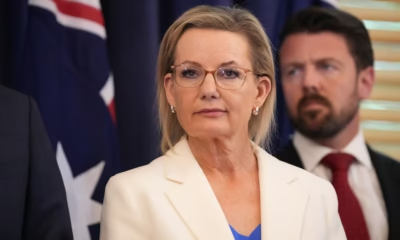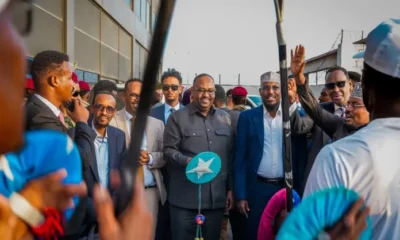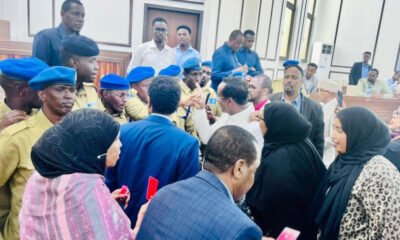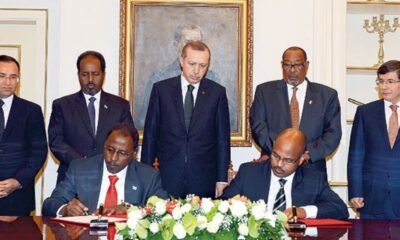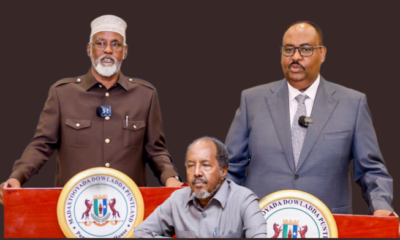Top stories
Pentagon Urged to Make Payments for Slain, Injured Civilians
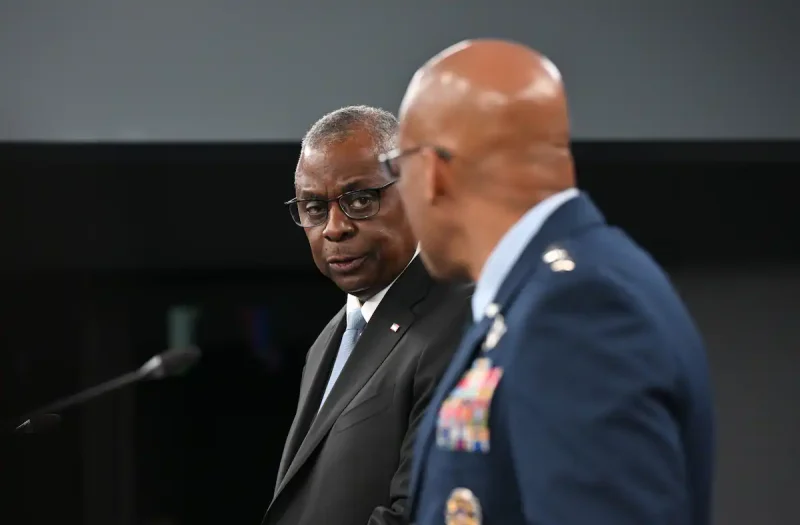
Advocacy groups are intensifying calls for the Pentagon to issue long-overdue condolence payments to civilians harmed by U.S. military operations overseas. The push, directed at Defense Secretary Lloyd Austin, highlights the Biden administration’s unfulfilled pledge to improve accountability for unintended casualties in conflicts spanning Iraq, Syria, Somalia, and Yemen.
The appeal, led by organizations such as the Center for Civilians in Conflict (CIVIC) and Human Rights Watch, comes as Austin’s tenure nears its end. Advocates urge him to act on outstanding payment claims, particularly in cases where the Pentagon has already confirmed civilian harm.
“Survivors have waited for years,” said Joanna Naples-Mitchell, of the Zomia Center, which represents affected families. These civilians have endured profound losses — homes, livelihoods, and loved ones — due to flawed airstrikes and military operations. For some, the loss of a family breadwinner or the onset of chronic disabilities has compounded the suffering.
Maha Khalil Ali, whose husband was killed in a 2016 airstrike in Mosul, Iraq, emphasized the significance of recognition. “The compensation is not all about the money,” Ali said. “It’s about the rights for those who lost a loved one.”
Condolence payments, unlike formal reparations, are discretionary and intended as gestures of goodwill rather than comprehensive compensation for losses. Yet Pentagon records reveal an alarming lack of follow-through: between 2020 and 2022, only one such payment was made, despite Congress allocating $3 million annually for the purpose.
In comparison, approximately $2 million was distributed for actions in Afghanistan between 2015 and 2019, with payments ranging from $131 to $40,000. Critics argue the Pentagon’s failure to disburse allocated funds signals a lack of commitment to addressing the human toll of its operations.
Annie Shiel of CIVIC criticized the slow pace of progress. “All Secretary Austin has to do now is say yes,” she said.
Under Austin’s leadership, the Pentagon introduced reforms aimed at reducing civilian harm. This includes a new framework for investigating casualties and a “center of excellence” to improve practices across the military. However, these initiatives have yet to translate into meaningful action for many families.
Emily Tripp, director of Airwars, which tracks civilian casualties, called for greater acknowledgment of the human impact of U.S. actions. “Civilians aren’t just collateral,” Tripp said. “They are individuals with needs, grievances, and complicated lives.”
The personal stories underscore the urgency of the issue. In Somalia, a 2020 strike killed an 18-year-old woman and injured three others, including a 7-year-old girl. While U.S. Africa Command later acknowledged civilian harm, affected families, such as journalist Mohamed Osman Abdi’s, remain without compensation or formal acknowledgment.
In Iraq, Ilyas Ali Abd Ali, a fruit vendor, lost a leg and his hearing in one ear during a 2016 strike in Mosul. His injuries prevent him from supporting his family, leaving them in dire straits.
“We are desperate,” Ali said. “My two daughters pray every single day for a solution, for a light at the end of this dark tunnel.”
Advocates stress that resolving these cases would not only ease the burdens on affected families but also reaffirm the Pentagon’s commitment to accountability. Sarah Yager of Human Rights Watch highlighted the symbolic importance of these payments.
“If your father was killed by a military and you knew that they didn’t even know who he was — that’s devastating,” she said.
As the clock ticks down on Austin’s tenure, victims and their advocates hope for decisive action that could set a precedent for future administrations. For families still waiting, acknowledgment and assistance could be the first step toward healing wounds left by years of neglect.
Top stories
Kremlin Declares Japan Relations ‘Reduced to Zero’
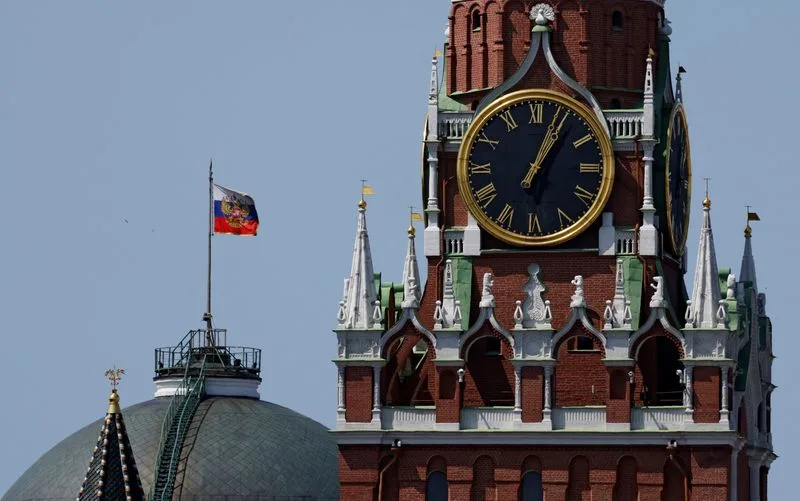
Eighty years after World War II, Russia and Japan still have no peace treaty — and now Moscow says there’s no dialogue at all.
Russia has declared that there is no ongoing dialogue with Japan toward a formal peace treaty, saying bilateral relations have effectively collapsed amid what the Kremlin describes as Tokyo’s “unfriendly” stance.
Kremlin spokesman Dmitry Peskov told reporters Friday that ties between Moscow and Tokyo have been “reduced to zero,” making discussions about a long-delayed peace agreement impossible under current conditions.
“There is no dialogue, and it is impossible to discuss the issue of a peace treaty without dialogue,” Peskov said during a daily briefing. He added that Russia had not sought to end discussions but argued that the deterioration in relations had made progress unlikely.
The dispute centers on the Kuril Islands — known in Japan as the Northern Territories — a chain of islands seized by Soviet forces at the end of World War II. The territorial disagreement has prevented Russia and Japan from signing a formal peace treaty, leaving the wartime conflict technically unresolved nearly eight decades later.
In her inaugural address to parliament on Friday, Japanese Prime Minister Sanae Takaichi reaffirmed Tokyo’s long-standing position. Despite strained ties, she said Japan remains committed to resolving the territorial issue and concluding a peace treaty with Russia.
However, Moscow’s tone suggests little appetite for movement. Peskov indicated that without a change in the broader framework of relations — including Japan’s alignment with Western sanctions and policies following Russia’s invasion of Ukraine — no agreements are likely.
The breakdown underscores the widening geopolitical divide between Russia and U.S.-aligned nations in Asia. Japan has imposed sanctions on Moscow and increased coordination with NATO partners, further complicating prospects for reconciliation.
For now, the decades-old territorial dispute remains frozen — another casualty of a broader global realignment that has hardened diplomatic positions on both sides.
Top stories
Taiwan? Trump’s Xi Comment Sends Shockwaves
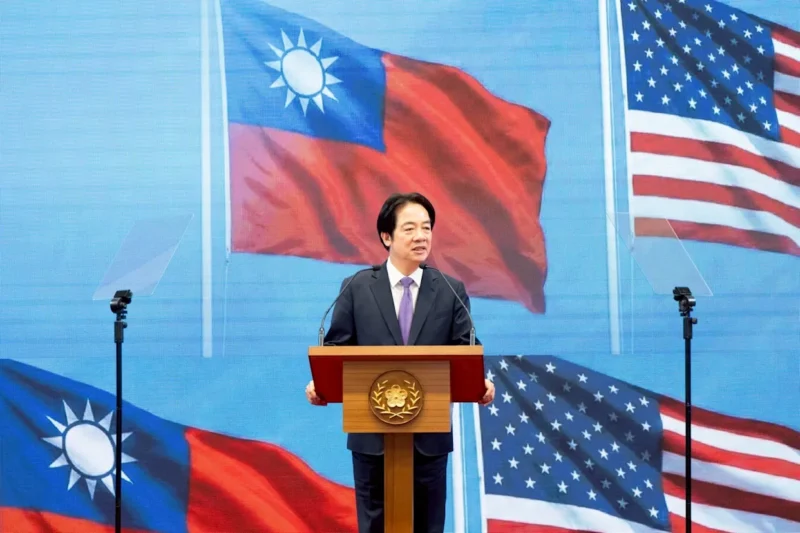
When Washington says it’s “talking to Beijing” about Taiwan arms sales, Taipei listens carefully — and nervously.
U.S. President Donald Trump has stirred unease in Taiwan after revealing he is discussing potential American arms sales to the island with Chinese President Xi Jinping, raising questions about whether longstanding U.S. policy guardrails are shifting.
Speaking to reporters Monday, Trump said: “I’m talking to him about it. We had a good conversation, and we’ll make a determination pretty soon,” referring to Xi’s objections to U.S. weapons packages for Taiwan. He added that he maintains “a very good relationship” with the Chinese leader.
The comments were unexpected and, according to several analysts, potentially sensitive. For decades, U.S. policy toward Taiwan has rested on carefully balanced principles designed to deter conflict without formally recognizing the island as independent.
One of those principles — known as the Six Assurances, issued under President Ronald Reagan in 1982 — explicitly states that the United States would not consult Beijing on arms sales to Taiwan. Analysts warn that even the perception of consultation could weaken that precedent.
Taiwan’s government has not publicly responded, as the island observes Lunar New Year holidays. But experts say the signal matters.
The United States does not have formal diplomatic ties with Taiwan, yet it remains the island’s primary security partner and arms supplier under the Taiwan Relations Act, passed in 1979. That law obligates Washington to provide Taipei with the means to defend itself and to regard threats against Taiwan as a matter of “grave concern.”
Beijing views Taiwan as part of its territory and has not ruled out the use of force to achieve unification. It routinely condemns U.S. arms sales and has intensified military pressure around the island in recent years.
In December, the Trump administration approved a record $11 billion arms package for Taiwan. Earlier this month, Xi reportedly told Trump during a phone call that Taiwan is “the most important issue” in U.S.-China relations and urged Washington to handle arms sales “with prudence.”
Analysts say Trump’s public acknowledgment of discussions could introduce uncertainty into the triangular relationship between Washington, Beijing and Taipei — particularly ahead of his planned visit to China in April.
For Taiwan, the concern is not necessarily that arms sales will stop, but that the issue might become negotiable in broader U.S.-China talks involving trade, technology or regional security.
As cross-strait tensions simmer, even rhetorical shifts can ripple far beyond diplomatic language. In Taipei, the question now is whether policy remains unchanged — or whether the foundations of U.S. strategic ambiguity are subtly moving.
Top stories
Washington Says It Shook Europe Awake
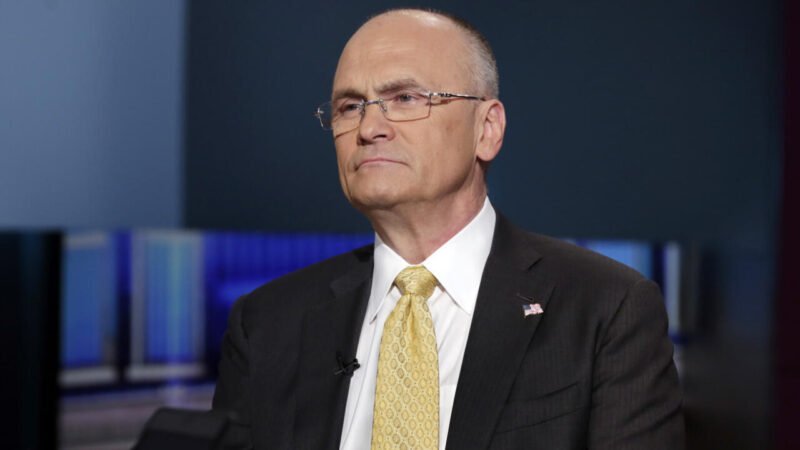
“Stop hitting the snooze button.” Washington claims Europe is finally listening.
The Trump administration has jolted Europe into action, according to the United States ambassador to the European Union, who said Washington’s tougher tone has helped push the continent to reassess its security and migration policies.
Andrew Puzder, the US ambassador to the EU, told Euronews that President Donald Trump and his team have effectively “woken up” Europe from complacency. Speaking on the broadcaster’s Europe Today program, Puzder described Secretary of State Marco Rubio’s recent address at the Munich Security Conference as both candid and constructive.
“It’s a hallmark of a great diplomat to say the things people need to hear, even if they don’t want to hear them,” Puzder said, characterizing Rubio’s speech as positive for the transatlantic alliance.
Rubio’s remarks came one year after Vice President JD Vance delivered a sharply critical speech at the same conference that unsettled European officials. This time, Puzder said, the audience was “very open,” and Rubio received a standing ovation.
Beyond security, migration featured prominently in the ambassador’s comments. Puzder argued that European policy has moved closer to the American position in recent years. He drew a distinction between what he called “managed migration” and “mass migration,” suggesting that large-scale arrivals over the past decade have created political and social strains across the continent.
When confronted with data showing that migrant arrivals to the European Union have declined from peak levels, Puzder said the broader concern is the cumulative impact of previous migration waves. He framed the issue as a long-term “civilisational challenge,” rather than a short-term numbers debate.
Climate policy also drew scrutiny. Puzder suggested that some European environmental measures may weigh on economic performance and GDP per capita, echoing criticism frequently voiced by the Trump administration.
Rubio’s European tour extended beyond Munich to Slovakia and Hungary, where he met Prime Minister Viktor Orbán, one of Trump’s closest allies within the EU. Asked about concerns over potential US interference ahead of Hungary’s April elections, Puzder dismissed the criticism, noting that Hungary is both a NATO ally and an EU member.
The broader message from Washington is clear: the transatlantic partnership remains intact, but the United States expects Europe to shoulder more responsibility — on security, migration and economic resilience — in what both sides increasingly describe as a new geopolitical era.
Top stories
India Seizes Iran-Linked Tankers, Expands Maritime Surveillance

Three tankers seized. Dozens of patrol ships deployed. India tightens its maritime net amid shifting global alliances.
India has seized three U.S.-sanctioned tanker vessels allegedly linked to Iran and significantly expanded maritime surveillance in its exclusive economic zone, according to a source with direct knowledge of the operation.
The vessels — Stellar Ruby, Asphalt Star and Al Jafzia — were intercepted roughly 100 nautical miles west of Mumbai after authorities detected suspicious ship-to-ship transfer activity. Such transfers are often used to obscure the origin of oil cargoes and bypass international sanctions.
Indian authorities have not issued a formal public statement confirming the identities of the vessels, but the source said the ships were escorted to Mumbai for further investigation. A February 6 social media post by the Indian Coast Guard referencing the interception was later deleted.
The United States previously sanctioned vessels with International Maritime Organization numbers matching those of the ships seized, including Global Peace, Chil 1 and Glory Star 1, under measures targeting Iran’s oil trade.
According to shipping data from LSEG, at least two of the vessels have direct links to Iran. Al Jafzia reportedly transported Iranian fuel oil to Djibouti in 2025, while Stellar Ruby has been flagged in Iran. Asphalt Star’s recent voyages centered around Chinese ports.
To strengthen enforcement, the Indian Coast Guard has deployed approximately 55 ships and up to 12 aircraft for continuous surveillance across its maritime zones.
The move comes amid improving relations between India and the United States. Earlier this month, Washington announced it would lower tariffs on Indian goods after New Delhi agreed to halt imports of Russian oil — a shift that signals closer alignment on sanctions enforcement.
By tightening oversight of ship-to-ship transfers, India appears intent on preventing its waters from becoming a conduit for sanctioned energy trade, reinforcing its strategic positioning in a shifting geopolitical landscape.
Top stories
Finland Says Russia Building Cold War-Style Military Sites Near Border
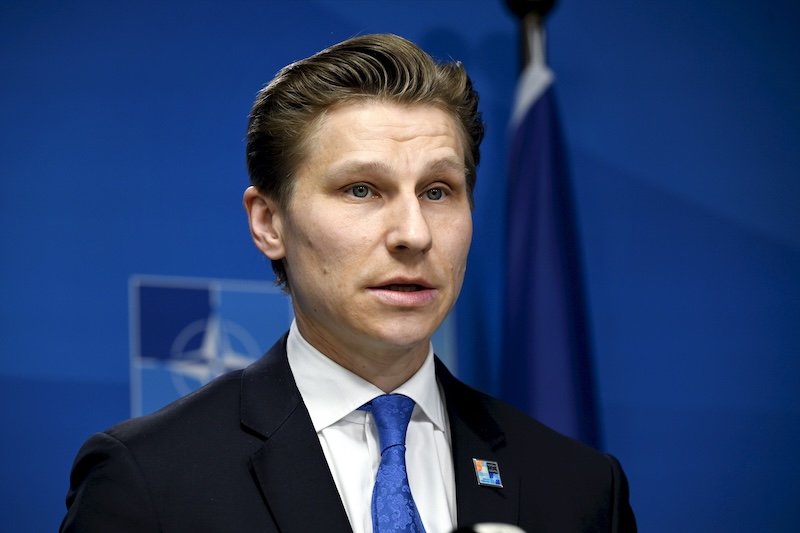
Nuclear submarines in the Arctic. New bases near Finland. Europe’s northern flank is heating up.
Russia is reinforcing its nuclear and military infrastructure in the Arctic, including building new facilities near the Finnish border, Finland’s defence minister has warned.
Speaking on the sidelines of the Munich Security Conference, Antti Häkkänen said Moscow is expanding its presence around the Kola Peninsula — a region that hosts much of Russia’s sea-based strategic nuclear arsenal and long-range aviation assets.
“Russia has most of their biggest strategic capabilities in nuclear, submarines, long-range bombers in the Kola Peninsula area,” Häkkänen said, adding that new facilities are being constructed along Finland’s border “same as the Cold War.”
The Kola Peninsula, spanning roughly 100,000 square kilometres, remains central to Russia’s Arctic posture. Finland, which joined NATO after Russia’s full-scale invasion of Ukraine, has since emphasized strengthening deterrence in the High North.
Häkkänen welcomed NATO’s renewed focus on Arctic security, including the launch of Arctic Sentry, an enhanced vigilance activity aimed at boosting allied coordination in the region. Still, he suggested the Arctic should have been prioritized much earlier.
Finland has positioned itself as a key Arctic defence actor, with forces trained for extreme northern conditions. Helsinki recently secured approval for €1 billion in EU defence loans to strengthen land forces, including investments in armoured vehicles and drones.
While discussions in Europe have intensified about strengthening a continental nuclear deterrent — with France and the United Kingdom exploring broader coordination — Häkkänen stressed that U.S. support remains indispensable.
“In the short term, and even mid-term, we need the U.S.,” he said, describing Washington as “ironclad committed” to NATO’s Article 5 collective defence guarantee.
As Arctic competition intensifies and geopolitical tensions deepen, Finland’s warning underscores a broader shift: Europe’s northern frontier is once again a strategic fault line.
Top stories
Leaked Liberal Plan to Ban Migrants from Gaza, Somalia Faces Pushback
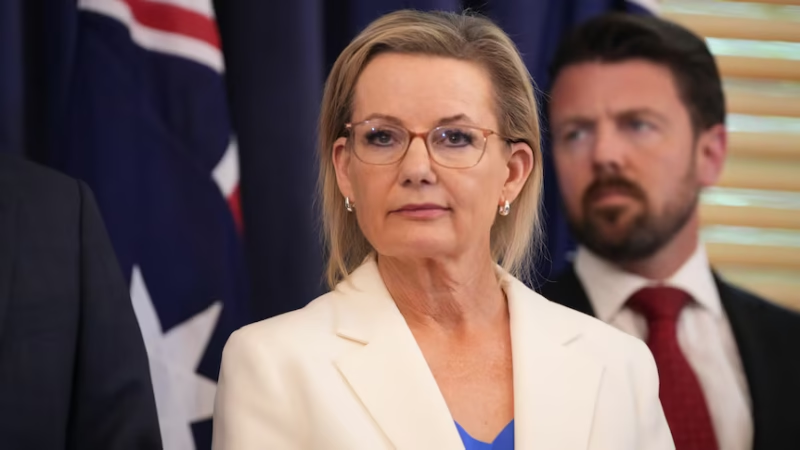
A proposed migration ban covering 13 countries. A leadership spill. And a shadow minister saying: “I never agreed.”
A leaked Liberal Party immigration proposal to ban migrants from specific regions in 13 countries — including Gaza, Afghanistan and Somalia — has triggered internal backlash, with the party’s former shadow immigration minister distancing himself from the plan.
The proposal, developed before Sussan Ley was removed as Liberal leader, outlined bans affecting 37 regions across Afghanistan, Algeria, Cameroon, Egypt, Lebanon, Libya, Mali, Niger, Nigeria, Palestine, the Philippines, Somalia and Yemen. The regions were reportedly selected based on areas where designated terrorist organisations hold territorial control.
Guardian Australia reported that the plan was not presented to shadow cabinet before Ley’s leadership loss and that her successor, Angus Taylor, had not reviewed the document.
Former shadow immigration minister Paul Scarr said he had “serious concerns” about such a policy. “I never proposed any such policy. I never agreed to any such policy,” he said, adding that he had raised objections internally.
Beyond regional bans, the draft plan reportedly sought to accelerate the removal of up to 100,000 asylum seekers and international students, restrict appeal rights for visa holders and tighten screening of social media activity to identify extremist views. It also proposed cuts to permanent migration, student visas and net overseas migration.
Taylor, who has made immigration a central issue under his leadership, said Australia must ensure newcomers uphold democratic values and the rule of law. “Numbers have been too high and standards have been too low,” he told reporters.
The federal government has set the permanent migration intake for 2025–26 at 185,000, with net overseas migration projected at 260,000 — already a decline from post-pandemic peaks.
The episode highlights tensions within the Liberal Party over how far to go in reshaping migration policy, as Taylor prepares to unveil a new shadow cabinet in the coming days.
Top stories
China’s Spring Festival Travel Surge Tests Economy and Infrastructure

Trains packed. Highways jammed. Airports full. China’s Lunar New Year migration is bigger than any other on Earth.
China’s annual Lunar New Year travel rush — known as “Chunyun” — is once again underway, with officials forecasting a record 9.5 billion domestic trips during the 40-day period, making it the largest yearly human migration in the world.
The travel surge began on February 2 and will continue through mid-March. The official Spring Festival holiday runs from February 15 to 23, giving families extended time to reunite and travel.
Chunyun is widely viewed as both a cultural tradition and an economic barometer. The massive movement of people places intense pressure on China’s transportation networks while offering insight into consumer confidence and spending patterns.
By February 10, the country’s rail system had transported more than 1 billion passengers since the rush began. Airlines reported 16.3 million trips in the first week alone, with roughly 95 million flights expected over the full travel season. Road travel accounts for the majority of journeys, particularly after transportation authorities expanded official counting methods in 2023 to include expressway traffic.
Domestic tourism trends reflect diverse seasonal preferences. Tropical destinations such as Hainan Island remain popular, while snow sports regions like Changbai Mountain attract winter holidaymakers.
International travel is also rising. Thailand and Australia are among favored destinations, while Russia has seen increased interest following its visa-free agreement with China. Travel to Japan has reportedly declined amid diplomatic tensions.
This year’s rush is expected to be particularly strong after authorities extended the Spring Festival holiday by one day. In addition, China broadened its visa-free entry policy to more than 45 countries, allowing visitors from many European nations, as well as Australia and New Zealand, to stay for up to 30 days.
For China, the Spring Festival migration remains more than a holiday tradition — it is a logistical feat and a powerful symbol of national mobility and economic pulse.
Top stories
What Is Ramadan? How Muslims Around the World Observe the Holy Month
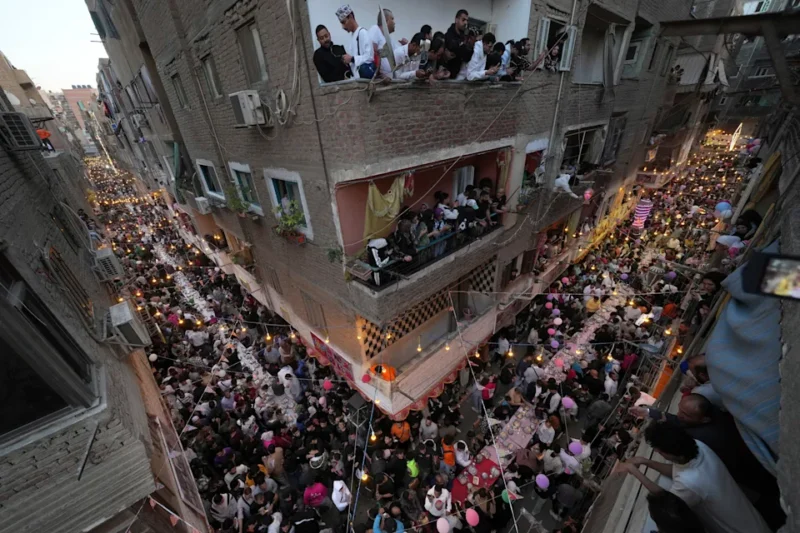
From sunrise to sunset, millions fast together. But Ramadan is more than hunger — it’s faith, reflection and shared humanity.
Muslims around the world are preparing to observe Ramadan, the ninth month of the Islamic lunar calendar, marked by daily fasting, prayer and acts of charity. The holy month is expected to begin around February 18 or 19, depending on the sighting of the crescent moon.
Ramadan’s start date shifts each year because the Islamic calendar follows lunar cycles. Religious authorities in different countries may announce slightly different start days based on moon sightings or calculation methods.
Fasting during Ramadan is one of the Five Pillars of Islam, alongside the declaration of faith, daily prayer, almsgiving and pilgrimage. From dawn to sunset, observant Muslims abstain from all food and drink — including water. The fast is broken at sunset with a meal known as iftar, often beginning with dates and water, followed by larger gatherings with family and friends.
Before dawn, many wake for suhoor, a pre-fast meal meant to sustain them through the day. Nights are often spent in extended prayers, including special congregational prayers known as Tarawih, and in reading the Quran.
Beyond fasting, charity plays a central role. Many Muslims donate food, distribute meals or support those in need. Acts of generosity are believed to carry added spiritual reward during the month.
Exemptions from fasting apply to those who are ill, traveling, pregnant, elderly or otherwise unable to fast. Missed fasts due to temporary reasons are typically made up later.
Cultural traditions surrounding Ramadan vary widely. In Egypt, colorful lanterns illuminate streets and homes. In Indonesia, torchlit parades and communal feasts mark the month’s arrival. In the United States and Europe, diverse Muslim communities gather in mosques and Islamic centers for nightly meals and prayers, sometimes hosting interfaith iftar events.
Ramadan concludes with Eid al-Fitr, a festive holiday celebrating the end of the fast.
While customs differ across regions, the core of Ramadan remains constant: spiritual renewal, discipline and solidarity with those less fortunate — a month that binds millions in shared devotion across continents.
-

 Minnesota2 months ago
Minnesota2 months agoFraud Allegations Close In on Somalia’s Top Diplomats
-

 Middle East2 months ago
Middle East2 months agoTurkey’s Syria Radar Plan Triggers Israeli Red Lines
-

 Editor's Pick2 months ago
Editor's Pick2 months agoWhy India Is Poised to Become the Next Major Power to Recognize Somaliland
-

 ASSESSMENTS2 months ago
ASSESSMENTS2 months agoSomalia’s Risky Pact with Pakistan Sparks Regional Alarm
-

 Analysis2 months ago
Analysis2 months agoTurkey’s Expanding Footprint in Somalia Draws Parliamentary Scrutiny
-

 Analysis2 months ago
Analysis2 months agoRED SEA SHOCKER: TURKEY’S PROXY STATE RISES—AND ISRAEL IS WATCHING
-

 Somaliland1 month ago
Somaliland1 month agoF-35s Over Hargeisa: The Night Somaliland’s Sovereignty Went Supersonic
-

 Somalia2 months ago
Somalia2 months agoIs Somalia’s Oil the Price of Loyalty to Turkey? MP Blows Whistle on Explosive Oil Deal


